#mis-translates
Text
logos operator file #3 translation for those who want to know what went down in the chair sliding tournament
Frankly, the elite team of Rhodes Island's Operators are an unapologetically weird bunch. I'm not saying that there aren't other weirdos on Rhodes Island besides them, or that their abilities are lacking in any way. As I explained, Doctor, the Elite Operators are not necessarily unparalleled powerhouses, but they are the vanguard of Rhodes Island: a group of people who have sworn to dedicate everything to their ideals, and who have managed to fulfil that oath despite the most challenging situations.
Crossing the line between life and death to embrace a more equal vision.
As for the "weirdo" comment... Doctor, you've worked with most of them, so of course you understand. Let me add a few details: Blaze has her own critical notifications in the medical department, because she goes into shock two to three times every time she participates in high-intensity combat; Stormeye is prone to getting carried away when fighting a strong opponent and requires someone like Sharp, who lives by "never do more than one has to", to tear him away from the line of fire; Misery's dazzling dagger-juggling skills actually have nothing to do with his Originium Arts, but inspired by a bet he made with Outcast; Mechanist's motor oil foam latte art coffee does exist, and Mantra has a penchant for quietly keeping tabs on the ship's gossip...
As for Logos? Ha, I think there are plenty of people in Rhodes Island who remember that one chair sliding race. Unfortunately, Doctor, you weren't there, but as you guessed, the tournament was instigated and organised by him. They first conducted group and round-robin matches in the workshop, then moved the finals to the training ground. The night before the finals, Logos and Mechanist made some unauthorised modifications to the operator training venue. When the contestants came to the track the next day, they found that they were actually going to face a brutal obstacle course with sharp turns and steep slopes.
Blaze was the first to be eliminated. She relied on heat to accelerate at the start, which burned the plastic on the wheels; Mechanist, who had confidently proclaimed victory before the match, was swept off the track by a trap he had placed himself on the very first U-turn; Misery was lost in thought while going at a constant pace, and ultimately failed to get out of the way in time, causing Outcast, who was leading by one lap, to rear end him... As the seeded racers were eliminated one by one, Ace came in to take on Logos and Scout in the final showdown. Just as they were rushing towards the finish line neck-to-neck, Amiya walked in, Kal'tsit following behind her. Ace immediately exited the track, but Logos and Scout apparently didn't notice the hush that fell over the crowd that had, just moments before, been cheering loudly. All in all, Logos was crowned the winner, Scout in second, and there was no third place. Under Kal'tsit's supervision, and for the first time as Rhodes Island's leader, Amiya delivered a "stern" talk to the person responsible—Logos.
You see, the Elite Operators are just a bunch of weirdos.
Joining the ranks of these weirdos is actually much easier than most people think. Becoming an Elite Operator doesn't require going through any assessment process. You only need to be officially recognised by Amiya, and a meeting of Elite Operators. If all goes well, you will receive a gift—a strange little key which is the only thing that can open the door in the workshop. It is only after you pass through that door when you truly become an Elite Operator of Rhodes Island.
In case you didn't know, Doctor, each key is created by Logos himself, and it can't be stolen. As such, the keys are also seen as a token by Elite Operators. Should the bearer never come back, Logos will be the first to know, and trigger them to self-destruct, leaving no residue.
Logos, and each of the weirdos I mentioned, knew very well the price of their "ideals".
——■■■
50 notes
·
View notes
Text
In the Spanish Gravity Falls dub, the “My ex-wife still misses me..but her aim is getting better!”
Is translated as “My ex-esposa todavía me quiere…¡me quiere matar!”
Roughly translating to “My ex-wife still wants me… wants me dead!”
#Being one of the first jokes I understood in Spanish I was in hysterics over this#it’s a dumb joke#it has a place en mi corazón#spanish#translation#gravity falls#it’s a bit more intense than the English one tbh#Quinn posts#100#500#10k
15K notes
·
View notes
Text
maybe not the absolute best thing about les miserables the novel (it’s a long book) but the one that stood out the most to me and has remained with me most strongly is that when the book is explaining to us the plight of fantine, who basically like finds herself poor and knocked up bc iirc she hooked up with some fuckboy who was never gonna stick around, victor hugo really takes pains to be clear that fantine did a lot of really dumb shit. she made stupid ass choices. she was naive and impulsive and unwise and myopic. it’s not a story where a tragic heroine did everything right and still got screwed. but the moral argument put forth by, i mean, to some degree the entire novel but particularly (to my recollection) by this section is essentially like, isn’t it so fucked up that we live in a society where someone can be functionally condemned to a life of suffering for the crime of being a fallible human being in their youth? isn’t being young and stupid and getting to move on from that a human right that we are denying people? shouldn’t you be allowed to be kind of an idiot without ruining your entire life? it’s such a clearly and expansively empathetic view and it’s an idea that people obviously continue to struggle with based on Any Time Anything Happens Ever and also one that i feel like continues to be rare in narrative art or media, at least expressed this fully or strongly.
#the fantine section also has my favorite line in les mis#which my translation recorded as:#Curiosity is gluttony. To see is to devour.#insane that the most trenchant line about celebrity culture came from a 19th century french dude but there we are
5K notes
·
View notes
Text
Luzu: A child of mine died to your hands on the QSMP
Quackity: [Literally told Luzu Tilin was his child a month ago] Who was your child?
Luzu: Tilin!
This is a compilation of several different clips confirming that Tilin's parents are Quackity and Luzu. QsmpEN also made a post about it!

(Every time I remember Luzu never got to meet Tilin because THE ONE DAY he planned to meet her, the server was closed, I get so sad...)
#QSMP#LuzuVlogs#Quackity#Tilin#Thank you again to @autistic-britta-perry for their help translating plurilove which I have never frickin heard before lmao#anyways#Tilin mi niña.... :(((#You deserved so much more than you got#I'll post a clip of Luzu reacting to her death in a little bit I just wanted to post this first#Edited#Subtitles#Translated#A few people were asking for clips / clarifications after the last post so here it is!#Dapper#Badboyhalo#man I don't post much about Dapper do I?#sorry kiddo#Luckity#I suppose#beanie duo#Portfolio
279 notes
·
View notes
Text
if you're wondering what the big deal is about the louis-philippe sentence in les misérables, it is, in the original french, 760 words long. the subject of the sentence doesn't appear until 95% of the way through, at word #711; the main verb is word #712. the sentence contains 91 commas and 49 semicolons and is almost entirely a list of laudatory adjectival phrases describing the erstwhile king of france. this is perhaps especially notable because les mis is, shall we say, not known for being particularly gung-ho about the monarchy.
this sentence copied and pasted into Word takes up more than one page single-spaced. in the 1800-page folio classique edition, it is fully two and a half of those 1800 pages. that means that les mis is 0.14% this single sentence. more of les mis is made up of this sentence than earth's atmosphere is made up of carbon dioxide (0.04%). if the page count of les mis stayed the same but every sentence was the length of this one, les mis would consist of only 720 sentences total.
incidentally, guess who named hugo a peer of france 17 years before the publication of les mis?
#he also goes on for another six pages after this but by then he has remembered the existence of the full stop#the endnotes say that hugo 'se devait de faire [ce portrait] aussi favorable que possible à la personnalité de l'homme#qui avait favorisé sa carrière' (had to make this portrait as favorable as possible to the character of the man who had favored his career)#in fairness to hugo it's not like louis-philippe was alive to read this. so he wasn't just sucking up to get something out of it#he says at the end of the chapter that this description is 'entirely disinterested'. which like on the one hand i get#bc like i said louis-philippe was not in power and reading this. but otoh victor 'ancien pair de france' hugo u r not exactly unbiased. lol#les mis#lm 4.1.3#i just looked up the english translation and gasp! hapgood turned it into four separate sentences!!!!#so i think y'all who are reading it via les mis letters (which uses hapgood i think?) are gonna miss out on the full experience :/#my posts#linked to#syntax#idk if i got this across but the worst part is that the subject of the sentence - the beginning of the independent clause -#doesn't occur until the very end. so for the first 95% of the sentence you're just waiting for the bass to drop!!!#like reading it out loud you have to raise your pitch at the end of every dependent clause because you haven't gotten to the subject yet#AND THERE ARE SO MANY CLAUSES!! 49 SEMICOLONS PEOPLE!!! FORTY-NINE!!!!#victor hugo would be TERRIBLE as a hype man. he would take so long that the crowd would tear him to pieces with their fingernails#before louis-philippe could come out on stage. and then they'd be so mad at louis-philippe for inspiring him that they'd tear LP apart too#actually i think i'm using hype man wrong. i'm thinking of the guy that gets the crowd hyped up for the main guy before the main guy#makes an appearance. a hype man is the guy who makes interjections during a song. victor hugo would be bad at both of these#like just imagine the announcer at the beginning of a basketball game. and now...your starting lineup...at power forward...#and then he just says the 760-word louis-philippe sentence.#dead. murdered at the hands of the fans. microphone shoved down his trachea.
2K notes
·
View notes
Text
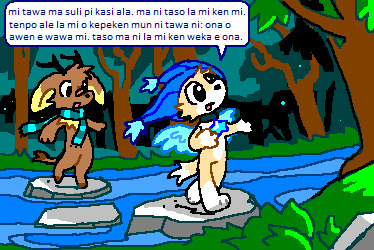

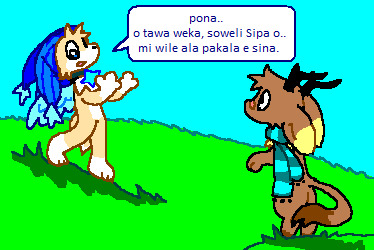







mi lon⭐
sitelen mama li tan @xxacidnekoxx. toki pona li tan @jan-asiku. o lukin e sitelen mama.
#mi olin wawa e sitelen ni#tan ni la mi ante e ona tawa toki pona#sitelen pi soweli @xxacidnekoxx#tokipona#langblr#language#languages#toki#translation#translations#ante toki#sitelen#sitelen musi#sitelen pona#sitelenpona#sitelenlasina#sitelen lasina#nasin lasina#nasin sitelen lasina#ante toki pi soweli @xxacidnekoxx#toki pona#musi#conlang
197 notes
·
View notes
Text
I really do love how Javert is the ultimate physical embodiment of the word “bootlicker.”
His entire personality is composed of “respect for authority and hatred of rebellion;” he grovels before anyone of a higher legal/social status, and thinks they can do no wrong. He puts all of his faith into the institution of policing. He worships his superiors in the police force and the legal system. He would sell out anyone who committed any infraction to the police, and would do it with smug glee.
I honestly cannot think of any fictional character who embodies the word “bootlicker” better.
I’ve mentioned before that one of my favorite small Javert moments is when he’s attempting to get Madeleine to fire him, and….he gives Madeleine a salute even when Madeleine’s back is turned, and he can’t see the salute. To me it shows how much Javert’s bootlicking is genuine. It is earnest. He earnestly believes in his own inferiority and the necessity of constant groveling respect to authorities. They don’t need to police him— he polices himself. He grovels even when their backs are turned.
He doesn’t just lick boots for show; he licks boots because he genuinely believes it is the morally correct thing to do, that an “inferior” is legally bound to grovel before their “superior.” And he enjoys this groveling; he experiences a savage glee at his usefulness to authority; he loves the taste of boot leather.
He’s a bootlicker all the way to the bottom of his soul.
#I’m also glad to see the fandom has mostly keyed into this#inspector javert#Julie rose translates ‘mouchard’ as ‘snitch’#les mis#which is…not a perfect translation#because I think ‘mouchard’ has some connotations similar to ‘bootlicker’ as well#it’s someone who sells you out to the police#to the authorities#but!#I also don’t think that’s a perfect translation either#I know Hapgood goes with ‘police spy’ for mouchard#which is a bit clinical and misses the derogatory connotations#but yeee!!
232 notes
·
View notes
Text
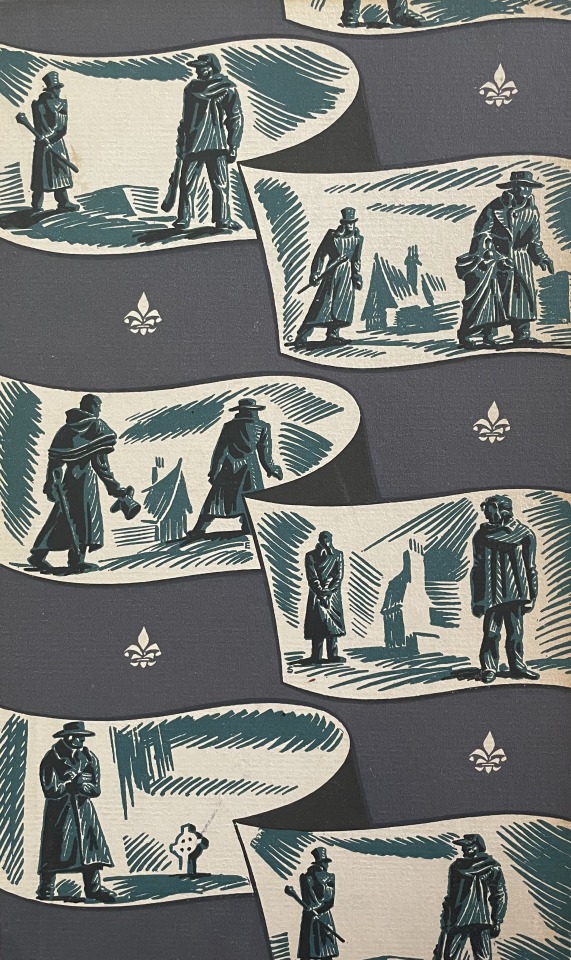
Les Misérables cover art - Lascelles Wraxall translation - Art by Lynd Ward
#my posts#les mis#les miserables#victor hugo#lascelles wraxall#wraxall translation#lynd ward#jean valjean#javert
210 notes
·
View notes
Text
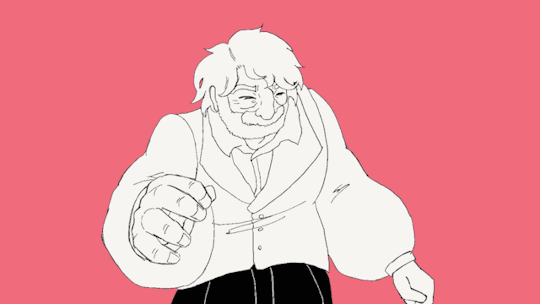
something to get used to animating again
#jean valjean#les mis#les miserables#doodle#animation#the idea is sorta based off the art for the song goodbye flower thief#and also…右に曲ガール (i don’t know if there’s a common translation for the title)
175 notes
·
View notes
Text
So I started rereading les mis, in french this time, and I'm sort of catching up to les mis letters (only sort of, for now, since I'm still at chapter 1.2.5 I think) and I do wanna talk about the title of the book because that title has fascinated me ever since I opened that book 14 years ago in its greek translation. So the greek translation of the title "les Misérables" mystified me. I think a big part of western languages have a variation of the word "misérable" in their vocabulary so the translation of the title is pretty much consistent (obviously not every western language, idk what happens with scandinavian translations or hungarian or russian for example). In greek we do not have the word "miserable" or "misery", we kind of use the word "mizeria" but only as a "western" variation of the greek word we have for misery, so we don't have the equivalent adjective. So the original greek translator needed to find a brand new adjective, in greek, to convey the meaning of the title, and honestly, what a task that is, finding the greek equivalent of probably the most iconic title in literature ever, just one word to encapsulate 1500 pages of text.
The word finally used is "Άθλιοι" (Athlioi) the plural form of "Athlios". It's an ancient greek word that is also commonly used in modern greek as is the case for a huge part of our vocabulary. So the ancient greek definition of "Athlioi" is "struggling, unhappy, wretched, miserable". In modern greek, the definition is more or less the same: "seedy, miserable, poor, terrible", except for the last word "terrible" that has an interesting connotation. The definition of "Athlioi" as terrible is an addition of modern greek. "Terrible" by itself maybe doesn't say much and it seems as a mere variation of the classic definition of Athlioi as "miserable, poor, wretched" etc. But from miserable and wretched to terrible there is an interesting leap. While "seedy, miserable, poor, terrible" are the english translations of the greek word "Athlioi" that I find on wordreference.com, I get very interesting results when I inverse the search, this time searching for the greek translation of the following english words (on wordreference or glosbe): despicable, nasty, vile, shady, appaling, loathsome, wicked, infamous, monstrous, horrible, lame, shabby, mangy, mean, vicious. You may have guessed it, all of the above are translated into "Athlios" in greek (among other words). The reason for that is that "Athlios" in modern greek has an extremely negative connotation. An "athlios" is not just a miserable wretched poor outcast. An "athlios" is a despicable human being, one that inspires disgust, one you should avoid in any case. A horrendous, vile, monstrous, hateful, creature. I am not sure if the word "Athlios" already had that definition at the time of the first greek translation (end of 19th century) but my bet is that it did, because that is what the word is primarily used for in Greece ever since I remember myself. When we use the word "Athlios" in greek now we rarely if ever talk about someone "miserable", "poor" or "wretched". We normally talk about someone or something despicable. If it's a person, 99% of the time this has a purely moral connotation aka, someone who is morally despicable. They could be a poor person, (a Thenardier type of vile individual) or they could be rich, doesn't matter really.
I am not sure if the word "misérable" or the english word "miserable" have this connotation. It is one thing to be wretched and totally another thing to be despicable and loathsome. Is this very close to the french word "misérable"? "Misérable" in french primarily means "pitiful, wretched", with one mention of "despicable", it is true. In Larousse however (the classic french dictionary) I cannot find one definition of "misérable" with the "vile, despicable" connotation that the word "Athlios" has. I am sure "misérable" can be used that way, and it can be translated that way in english, but vile and despicable are not the leading definition one thinks about when they encounter the word. When we use the word "misérable"/miserable, we normally do not immediately think of a despicable, vile, loathsome individual. So this choice of title by the greek translator takes some liberties. He could have used our greek word for "pitiful", "outcast" or one particular greek word we have for "scorned" that has a particular depth because it means scorned, neglected and forgotten by society all at the same time. Or he could have went for our word for "miserable" in the sense of "unhappy". All of these could have worked well enough. But he went for "Athlioi". Why? Athlioi is the only word that has a truly negative connotation for the morality of a person, of their moral value, and the way society percieves that moral value.
I got to the chapter "The Evening of a Day of Walking" where Valjean makes his first appearence. The english translation is this:
"It was difficult to encounter a wayfarer of more wretched appearance".
Then Hugo proceeds with a description of his appearance that is particularly unsettling, to say the least. He was literally dressed in rags with iron-shod shoes and he had holes in his clothes. At the end of the description he says:
"The sweat, the heat, the journey on foot, the dust, added I know not what sordid quality to this dilapidated whole".
So that guy is 1) certainly unhappy, 2) clearly wretched, 3) has a sordid quality and 4) a dilapidated look.
It is interesting that in french, the phrase "wretched appearance" is actually "aspect misérable". It is important to note this because this is the first time that the author gives us a description of a character that encapsulates what a "Misérable" according to the title actually is. Moving along, Valjean is not accepted in any inn or house and the people force him to leave because they are horrified by 1) his appearance and mainly 2) his profile as an ex convict that makes him a "Dangerous Man". "Dangerous Man" is literally written on his passport. A pitiful creature is maybe not that loathsome by itself, but a "Dangerous Man" is definitely something that you want to stay away from.
At the chapter "The Heroism of Passive Obedience" (1.2.3) Valjean enters the bishop's house and the bishop's sister sees him and describes him like this:
"He was hideous. It was a sinister apparition."
"Mademoiselle Baptistine turned round, beheld the man entering, and half started up in terror".
"Wretched" and "pitiful" cannot cover the impact this individual had on people, on society. That man was not just deeply unhappy, in a deplorable state, wretched and pitiful. That man was appaling. That man was loathsome. That man inspired horror, disgust, and intense, bone deep hatred. It is important to note this aspect of "misérable". The fear society has for the injustice it creates is so strong that it is far easier to dehumanize these individuals by slapping the label of "despicable", "vile", "loathsome" on them. It makes their total marginalisation easier because it justifies it. People are truly disgusted by and terrorised by Valjean. For society, there is a reason why that man is in a pathetic, deplorable, "miserable" state. It's because he is truly, irrevocably, morally hideous, loathsome and nasty. He is "dangerous". He truly is a monster inside out. And that particular manifestation of social misery is nicely conveyed by the word "Athlios" in my opinion.
#les miserables#aspa reads les mis#jean valjean#les mis letters#catching up#les mis translations#lm 1.2.3#lm 1.2.1#les misérables#aspa rambles#long post#the brick
111 notes
·
View notes
Text

A few doodles
After like five years I've finally almost learned to sketch on my phone 😻
#sam and max#my art#not sure if i want to translate the comment#it wouldn't be funny#estoy en mi español posteo hora
202 notes
·
View notes
Text
#les miserables#les mis#literature#french literature#considering doing polls for the books within each of the volumes too...#also i know that some translations/printings call them parts instead of volumes but.
107 notes
·
View notes
Text

a comic about being fictionkind, denial, and awakening
#alterhuman#fictionkind#fictionkin#fictionfolk#otherkin#musi mi#eyestrain /#eye imagery /#toki pona translation: “I am the same as her” / “I exist” / “I want to see them again”
181 notes
·
View notes
Photo
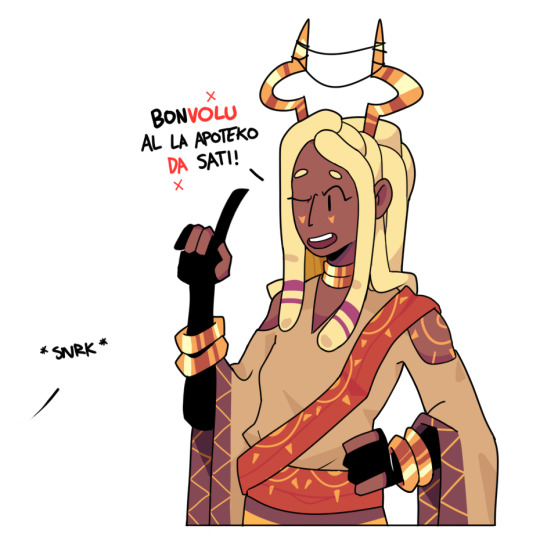
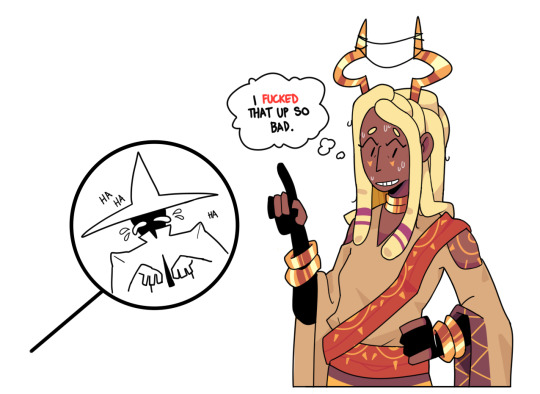
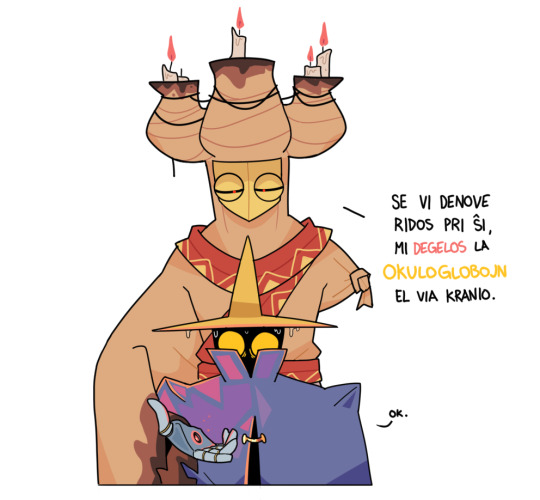
all my wizards speak esperanto (to varying degrees)
#wizardposting#esperanto#my art#my ocs#ahura#sati#mi estas nur komencanto#please be nice to me...#final image translation: if you laugh at her again i'll melt the eyeballs from your skull
350 notes
·
View notes
Text
#not including wraxall bc it's OOP and/or rarely read and AF's bc it's racist propaganda#anyways i'm genuinely RLLY curious as 2 which flavor of the brick y'all prefer! i'm reading donougher & liking it & will read hapgood after#les mis#les misérables#les miserables#the brick#len asks#i think its rlly cool how many translations we have. everybody can find at least one that speaks to them i think!
333 notes
·
View notes
Text
“The lion shaking off dogs” is an appropriate comparison for the barricades, bringing back the imagery of wild cats being rebellious in contrast to the law-enforcing dogs!
Marius and Enjolras are terrifying (and Hugo even uses “terrible” for Marius here).
It’s sad that Courfeyrac has lost his hat, but at least he jokes about it a bit! And while it’s sad on the personal level, it’s important for appearances. Without hats and cravats, the men at the barricades are much less distinguishable on the basis of class. Even death doesn’t bring equality in this book (we saw that with Fantine), but at the barricades, they might actually all die as equals, indistinguishable from one another without these class markers and all branded as disloyal rioters.
Their “jokes” are much darker now, though, with the lightheartedness of earlier chapters vanishing.
Hugo brings up the Trojan War and epic verse here, and he seems to draw on it in writing. In the Iliad, there are long lists of names of the dead with the occasional brief description of how they died (he quotes an example). That’s how we learn of the majority of Les Amis’ deaths:
“Bossuet was killed; Feuilly was killed; Courfeyrac was killed; Combeferre, transfixed by three blows from a bayonet in the breast at the moment when he was lifting up a wounded soldier, had only time to cast a glance to heaven when he expired.”
(I’m sorry for including this line). But here, we see that there’s still no time to grieve, even as most of the group dies in quick succession. Combeferre gets a bit more detail, but only to remind us that he was a medical student, more interested in healing than in combat. And yet even as a healer, he’s not spared, killed when he was trying to treat someone (possibly an enemy, too! He’s described as a soldier).
In epics like the Iliad, there’s a section called the “aristeia” where a hero shows his prowess on the battlefield. This is Enjolras’ aristeia. He’s the only one who hasn’t taken any blows, and he’s fiercely defending the barricade in a way that definitely reminds us why he’s “terrible.” He’s paralleled to a god, and he’s certainly “god-like” by epic poetry standards here.
#les mis letters#lm 5.1.21#enjolras#bossuet#feuilly#courfeyrac#combeferre#marius pontmercy#at least some of the translations miss joly's death?
120 notes
·
View notes